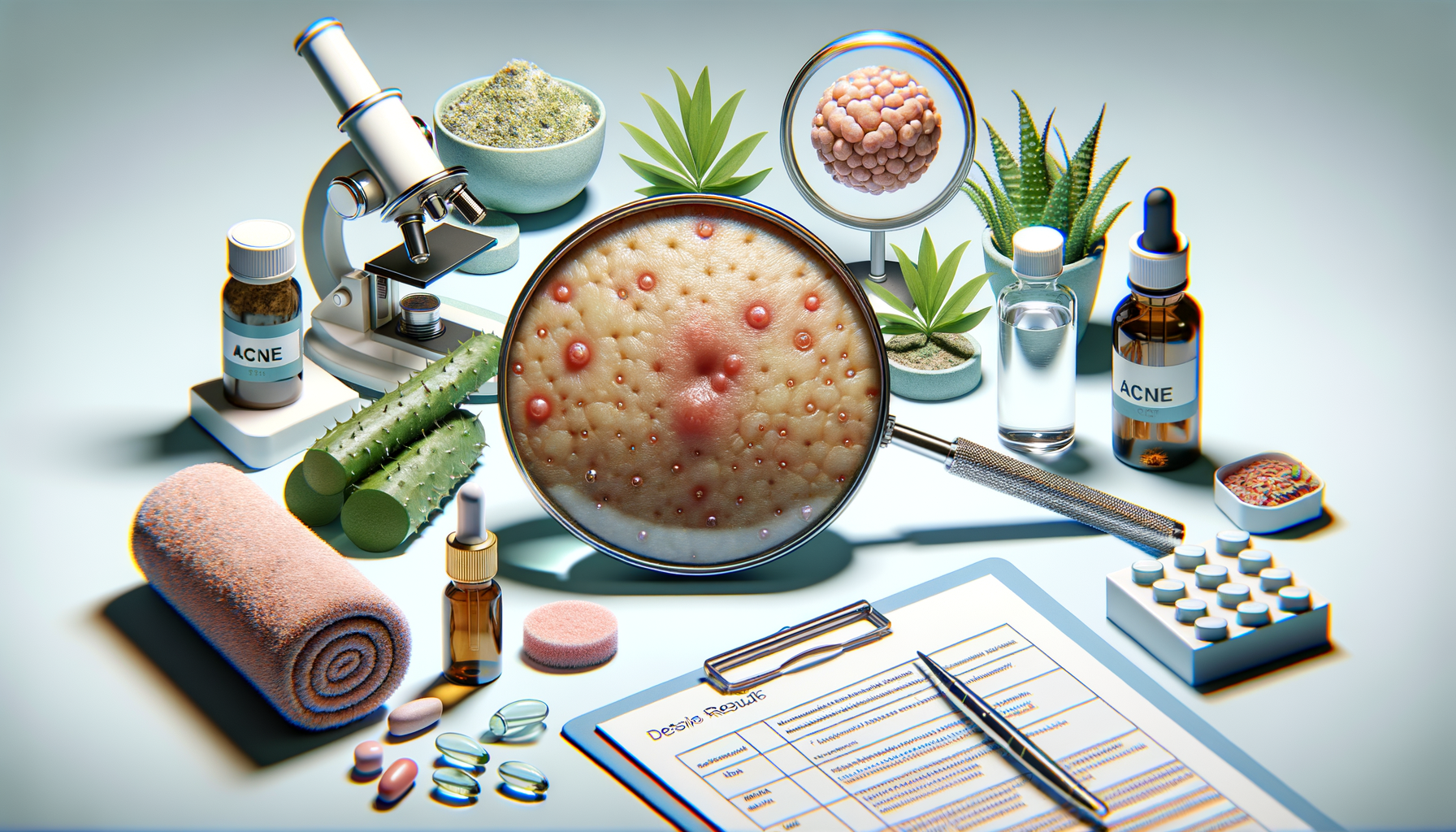
Acne Management: What Diet, Remedies, and Testing Reveal
Understanding Acne: Causes and Triggers
Acne is a common skin condition affecting millions of individuals worldwide. It manifests as pimples, blackheads, and cysts primarily on the face, back, and shoulders. Understanding acne begins with recognizing its causes and triggers. The primary factors include excess oil production, clogged hair follicles, bacteria, and inflammation. Hormonal changes, particularly during puberty, can exacerbate these factors, leading to more severe outbreaks.
While genetics play a significant role in acne development, lifestyle and environmental factors also contribute. Diet, stress, and skincare products can influence the severity and frequency of acne. For instance, high-glycemic foods and dairy have been linked to increased acne in some individuals. Stress, on the other hand, can trigger hormonal changes that may worsen the condition.
Identifying personal triggers is crucial for effective management. Keeping a journal of diet, skincare routine, and stress levels can help pinpoint specific factors that may be contributing to acne flare-ups. By understanding these elements, individuals can tailor their treatment approach, making it more personalized and effective.
Diet and Acne: The Connection
The relationship between diet and acne has been a subject of research for many years. While not all studies agree, there is evidence suggesting that certain dietary choices can influence acne severity. High-glycemic foods, such as sugary snacks and refined carbohydrates, can lead to spikes in blood sugar levels, which may increase oil production and inflammation, contributing to acne.
Dairy products have also been implicated in acne development. Some studies suggest that hormones present in milk can stimulate the skin’s oil glands, leading to clogged pores. However, the impact of dairy on acne can vary from person to person, making it essential for individuals to observe their body’s reactions to different foods.
Incorporating a balanced diet rich in fruits, vegetables, and whole grains can support overall skin health. Foods high in antioxidants, such as berries and leafy greens, can help reduce inflammation and promote clearer skin. Omega-3 fatty acids, found in fish and flaxseeds, are also beneficial due to their anti-inflammatory properties.
Home Remedies: Natural Approaches to Acne
Home remedies offer a natural approach to managing acne, often using ingredients readily available in the kitchen. While these remedies may not replace medical treatments, they can complement them and provide relief for mild acne cases.
Tea tree oil is renowned for its antibacterial properties, making it a popular choice for acne treatment. Applying diluted tea tree oil to affected areas can help reduce bacteria and inflammation. Similarly, honey, with its natural antibacterial and soothing properties, can be used as a face mask to calm irritated skin.
Aloe vera is another natural remedy known for its healing and anti-inflammatory effects. Applying aloe vera gel directly to the skin can soothe redness and promote healing. Additionally, green tea, rich in antioxidants, can be used topically or consumed to help reduce acne severity.
It’s important to note that while natural remedies can be effective for some, they may not work for everyone. Patch testing new ingredients on a small skin area can help prevent adverse reactions.
Medical Treatments and Testing for Acne
For moderate to severe acne, medical treatments may be necessary. Dermatologists can prescribe topical or oral medications tailored to the individual’s skin type and acne severity. Common topical treatments include retinoids, which help unclog pores, and benzoyl peroxide, which targets bacteria and reduces inflammation.
Oral medications, such as antibiotics, can be prescribed to reduce bacteria and inflammation from within. In cases of hormonal acne, oral contraceptives or anti-androgen medications may be recommended to regulate hormone levels.
Medical testing can also play a role in acne management. Blood tests can help identify hormonal imbalances or deficiencies that may contribute to acne. Allergy testing can reveal sensitivities to certain foods or products that may exacerbate the condition. By understanding the underlying causes, dermatologists can create a more targeted treatment plan.
Conclusion: Tailoring Acne Treatment to Individual Needs
Acne management requires a multifaceted approach, combining lifestyle changes, home remedies, and medical treatments. Understanding the causes and triggers of acne is essential for effective management. By exploring dietary influences, utilizing natural remedies, and seeking professional medical advice, individuals can develop a personalized treatment plan that addresses their specific needs.
While there is no one-size-fits-all solution to acne, patience and persistence are key. Monitoring the skin’s response to different treatments and making adjustments as necessary can lead to clearer, healthier skin over time.
Ultimately, the journey to managing acne is personal and unique to each individual. By staying informed and proactive, individuals can take control of their skin health and achieve lasting results.